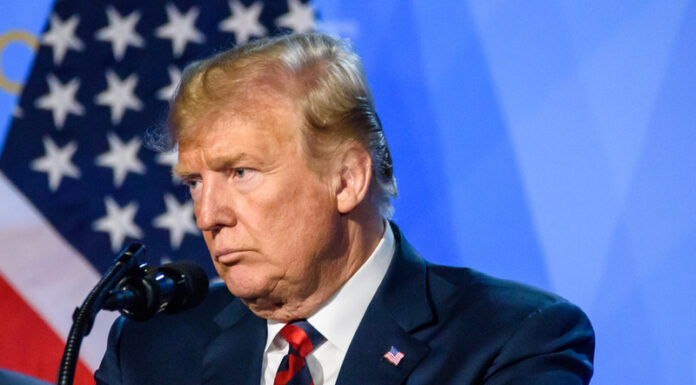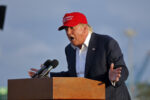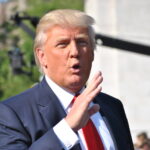President Donald Trump has launched an unprecedented effort to reshape federal election operations through a series of executive orders and strategic appointments designed to centralize control over voting systems, according to a new analysis from voting rights advocates. The comprehensive strategy marks a significant departure from traditional presidential involvement in election administration.
Since taking office, Trump has installed loyalists in key Justice Department positions, including Attorney General Pam Bondi and FBI Director Kash Patel, both of whom previously supported claims about the 2020 election. The appointments represent a stark contrast to his first administration, where officials like former Attorney General William Barr refused to comply with Trump’s election-related requests.
On March 25, Trump issued a sweeping executive order attempting to override state election laws despite having limited constitutional authority in election administration. The order directed the Election Assistance Commission to require proof of citizenship for voting, mandated rescinding certifications for most voting machines, and ordered the Department of Homeland Security to obtain complete voter files from every state, including sensitive data like Social Security numbers.
Federal judges have already blocked significant portions of the executive order. One judge prevented implementation of the proof of citizenship requirement, while another blocked most other provisions from taking effect. Litigation challenging the voting machine decertification continues in court.
The Department of Homeland Security has sent letters to election officials in six states demanding their complete, unredacted voter files. The Justice Department has filed lawsuits against North Carolina and Orange County, California, seeking similar access to voter data that states are legally prohibited from sharing in many cases.
Sean Morales-Doyle, director of the voting rights and elections program at the Brennan Center for Justice, described the actions as part of a coordinated strategy. The organization’s analysis characterizes these moves as “an unprecedented intrusion by the White House into the way that our elections work.”
Trump has established election integrity task forces in multiple U.S. Attorney offices, including positions previously held by former Trump lawyer Alina Habba in New Jersey and former Fox News anchor Jeanine Pirro in Washington, D.C. These task forces are targeting and threatening election officials through what Trump calls the Weaponization Working Group, headed by right-wing attorney Ed Martin.
The administration has also moved to dismiss federal prosecutors and inspectors general, including those who worked on cases against January 6 rioters. Trump fired large numbers of career federal employees after removing their civil service protections, a process that voting rights advocates say could take years or decades to reverse.
David Becker, executive director of the nonpartisan Center for Election Innovation & Research, noted the Justice Department’s unusual approach. He indicated that Trump’s appointees are acting more like a political campaign operation than a traditional law enforcement agency, representing a departure from all previous administrations including Trump’s first term.
The president has also attempted to reclaim unilateral spending control through what is known as “impoundment,” issuing orders to freeze federal grant and assistance programs. This effort faces significant legal challenges, as the Supreme Court rejected similar presidential power claims in the 1970s during the Nixon administration.
Meanwhile, Republican-controlled Texas has initiated an unusual mid-decade redistricting effort aimed at gaining five additional congressional seats for the 2026 midterm elections. The plan has stalled as Democratic lawmakers left the state to prevent a vote, prompting Governor Greg Abbott to seek their removal from office through the state Supreme Court.
Former President Barack Obama criticized the Texas redistricting effort on social media, calling it a power grab that undermines democracy. California Governor Gavin Newsom and New York Governor Kathy Hochul have indicated they would initiate their own redistricting efforts if Texas proceeds with its plan.
Trump has expressed support for similar redistricting efforts in California and backed Senator John Cornyn’s proposal to use FBI resources against Texas Democratic legislators who left the state. During a CNBC interview, Trump claimed Republicans were “entitled” to the additional seats and floated expanding such efforts to other states.
Political consultant James Carville predicted that Trump’s approval ratings would face significant challenges, pointing to polling data showing support among voters under 30 dropping from 50 percent to 39 percent within two weeks. Multiple recent polls have shown Trump’s approval ratings declining, particularly regarding economic issues as inflation rises.
The administration has also implemented new tariffs against Canada and Mexico, causing stock market declines and raising concerns about supply chain disruptions. Auto manufacturers have warned that the 25 percent tariffs could significantly increase vehicle prices and create competitive disadvantages for American brands.
Trump recently signed major tax legislation that extends previous tax cuts while reducing Medicaid spending and implementing new work requirements for program recipients. The Congressional Budget Office estimates that millions of Americans will lose health insurance coverage as a result of the changes, which take effect in fiscal year 2027.








